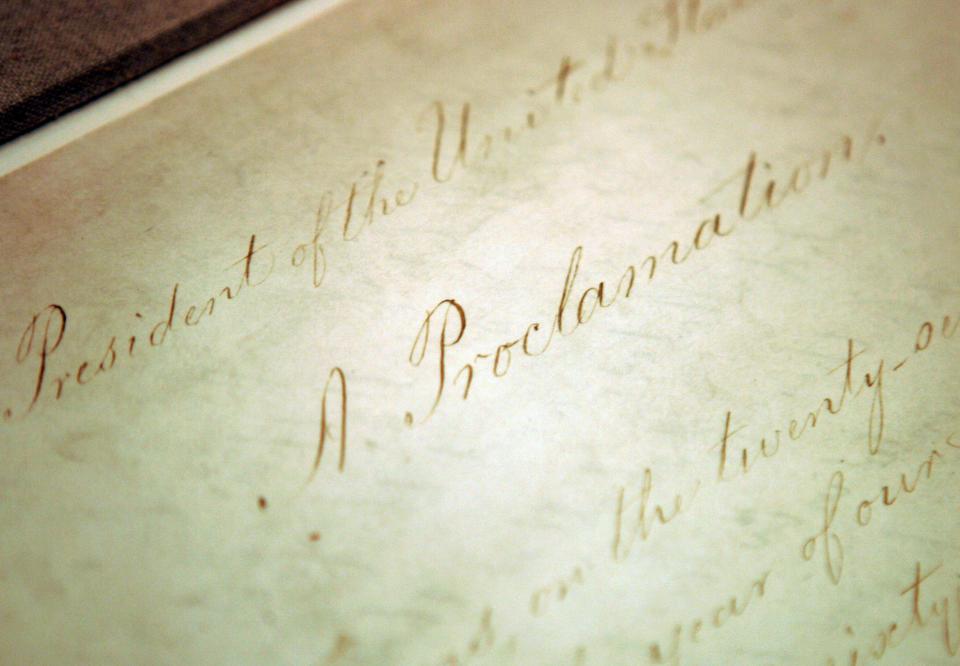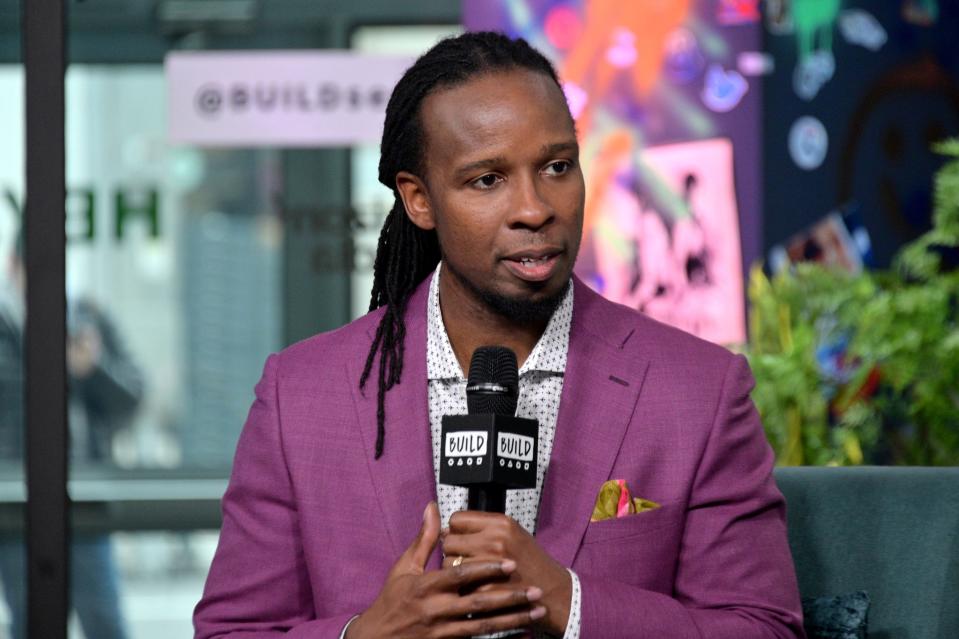Applaud Juneteenth progress but not pushback on critical race theory

After generations of historical illiteracy, our country is beginning to own up to our collective inheritance on race.
The U.S. Senate passed a bill to make Juneteenth a national holiday commemorating emancipation. But as we celebrate, a campaign is underway to keep our children ignorant of the more complex racial history that still shapes the country. From the halls of Congress to school boards, some on the right are trying to stifle honest education about racism and the ways it costs us all.
In recent weeks, former Vice President Mike Pence has said that systemic racism is a “left-wing myth.” Sen. Josh Hawley, R-Mo., has tried to stop a Biden appointee in part because she is a fan of prize-winning historian Ibram X. Kendi, who writes about anti-racism. Conservative donors and political operatives are supporting this agenda as a way to stoke outrage among their base, hoping it will keep them activated for the 2022 midterm elections. It's a political game, but with very real consequences for our children; millions of whom live in the four states that have rushed to pass bans on teachings about systemic racism in schools.
It has become a truism to say people who don’t learn from their history are doomed to repeat it, but I’d go further: People who are deliberately robbed of their shared history are doomed to be manipulated by those in power, again and again.

Rachel Vindman, the co-host of a podcast about suburban women and politics I was invited to speak on, told me that even though she was born and educated in Oklahoma, she had only learned about the Tulsa Race Massacre a scant two years ago, well into her adulthood. “It makes me upset,” Vindman said. She felt robbed of her own community’s history.
More in Reparations: Traumatic harms of slavery aren't gone. Reparations must also be psychological.
It is upsetting that we are robbing our children of their birthright, and ill preparing the most diverse generation in history to understand race in America. In 2017, the Southern Poverty Law Center found that less than 10% of the high school seniors surveyed knew that slavery was the main driver of the Civil War, a shocking survey that also found schools had inadequate and outdated textbooks and weak state standards. And this dishonesty isn’t limited to former members of the Confederacy. Just five years ago, some students in Connecticut were still learning from their textbooks that enslaved people were treated “like members of the family” by the people who owned them.

But thanks to the work of educators committed to giving students an honest education, and spurred by our ongoing national conversation on systemic racism that began with the Black Lives Matter movement, this is beginning to change. The Tulsa massacre has finally become a required part of Oklahoma’s curriculum, instead of merely optional. As Joy Hofmeister, the state’s top education official, said recently, "We have to teach this and face the ugliness of what I believe we've been too ashamed to talk about in the past,” adding, “We cannot turn our back on the truth."
More in Reparations: My teacher's lack of empathy for slaves was generations in the making
The truth is, we solve problems only when we are honest about the causes of those problems. It’s no wonder, then, that in Republican-dominated states around the country, lawmakers have engaged in a coordinated backlash against this burgeoning admission of injustice, passing laws banning what they have misleadingly termed “critical race theory.” It's become a catchphrase for any teachings about race – a once-obscure term with the effect of dismissing facts as "theories."
This backlash to progress is happening in Congress as well. At the end of April, Senate Minority Leader Mitch McConnell and other Republicans condemned an effort by the Biden administration to teach about systemic racism and Black success. It’s particularly cynical to burden local schools with hyped-up controversies as they struggle to reopen and recover from the pandemic.
A Rhode Island school official responding to a kindergarten parent’s hundreds of public records requests about race and gender felt it was an effort “to shut the system down.”
The goal seems to be to scare white parents by conjuring up a new boogeyman built around some very old threats – and to chill the speech of teachers, students and parents committed to having substantive conversations about racism. The hope is not only to keep future generations ignorant of our shared past and present, but also to distract and manipulate the public into yet another zero-sum culture war, instead of uniting behind common solutions to our common problems.
The truth is that American families do have much in common.
A bipartisan, multiracial majority of voters support the Biden administration’s plans to invest in child care, elder care, paid family leave and new green jobs by raising taxes on corporations and the wealthiest Americans. A bipartisan, multiracial majority supports strengthening our democracy through the For the People Act. This is all legislation that congressional Republicans are stonewalling, and they think they can get away with it if enough white parents are organizing against our public schools and overburdened teachers instead of uniting with parents of color to demand family-friendly public policies and living-wage jobs.
At best, these attacks on honest education keep us distracted and divided; at worst, they rob people of the knowledge needed to fight dangerous disinformation and manipulation. If more Americans knew about what happened in Colfax, Louisiana, in 1873 – when an armed white supremacist mob stormed their own courthouse to stop the certification of an election they thought was stolen by an alliance of Black and white voters, killing dozens of Black people who were protecting the courthouse – history might not have nearly repeated itself on Jan. 6 at the U.S. Capitol. And if more Americans knew the racist roots of lies about voter fraud, millions of Americans might not be enthralled by the Big Lie about the 2020 presidential election, a belief that is stalling progress on the anti-corruption measures we need to preserve our democracy.
Many Republican politicians, Fox News pundits and plutocrats eager to see us separated from one another are right to be afraid. But the rest of us? We have nothing to fear. Tens of millions of Americans demonstrated peacefully in support of racial justice last summer, and nearly 95% of Black Lives Matter protests were in majority-white counties.

Julie Johnson, a writer and teacher living in Washington state whom I interviewed for my book "The Sum of Us," described her own education about systemic racism as one that liberated her to live a life truer to her own values. Inspired by the burgeoning Black Lives Matter movement in 2015, she began reading books about race and racism and attending demonstrations in solidarity with Black lives.
“There was just a massive awakening,” she recalled, one in which she realized that racism “is our problem to solve.”
But this overdue process of racial reckoning isn’t a zero-sum game: Addressing racial equity will benefit our entire society, allowing more financial and human capital to flourish in every community. Think of investments in racial equity -- from honest education to reparations -- as seed capital for the nation we’re becoming.
That’s why we can’t afford to let a well-funded political elite rob us of our shared history – the struggle, the overcoming, the pain and the resilience. Because in doing so, they want to rob us of something even more precious: our potential shared future, one in which the elite may have less undue power, wealth and influence, but where the rest of us will thrive.
Heather McGhee is the author of "The Sum of Us: What Racism Costs Everyone and How We Can Prosper Together."
You can read diverse opinions from our Board of Contributors and other writers on the Opinion front page, on Twitter @usatodayopinion and in our daily Opinion newsletter. To respond to a column, submit a comment to letters@usatoday.com.
This article originally appeared on USA TODAY: Applaud Juneteenth progress but not pushback on critical race theory

 Yahoo Movies
Yahoo Movies 